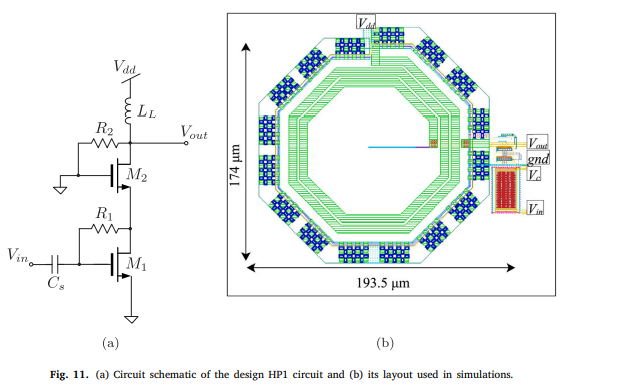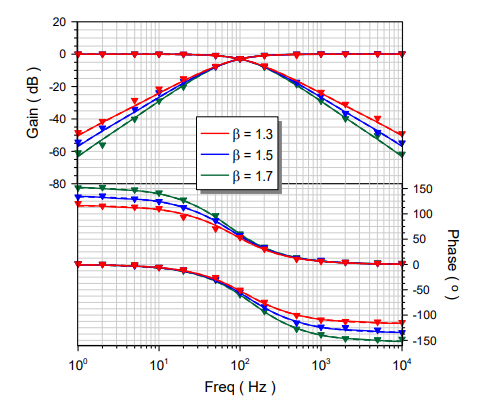Breadcrumb
Fractional-order oscillators
Fractional-order calculus is the branch of mathematics which deals with non-integerorder differentiation and integration. Fractional calculus has recently found its way to engineering applications; particularly electronic circuits with promising results showing the feasibility of fabricating fractional-order capacitors on silicon. Fractionalorder capacitors are lossy non-deal capacitors with an impedance given by Zc = (1/jωC)α, where C is the pseudo-capacitance and α is its order (0 < α ≤ 1). When these fractional-order capacitors are employed within an oscillator (sinusoidal or relaxation) circuit, this oscillator is called a fractional-order oscillator and is described by non-integer-order differential equations. Therefore, an oscillator of order 1.5 or 2.6 is possible to obtain. While the oscillation frequency in integer-order oscillators is related to their RC time constants, fractional-order oscillators have their oscillation frequencies also related to α. This adds more design freedom and enables extremely high or extremely low oscillation frequencies even with large RC time constants. This chapter aims at reviewing the theory of designing fractional-order oscillators accompanied by several design examples. Experimental results are also shown. © The Institution of Engineering and Technology 2017. All rights reserved.



